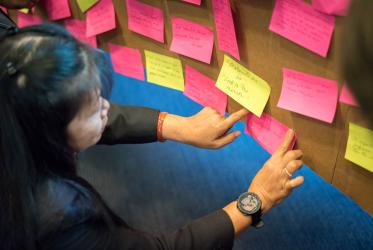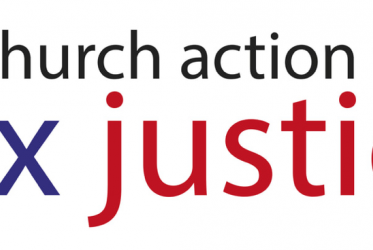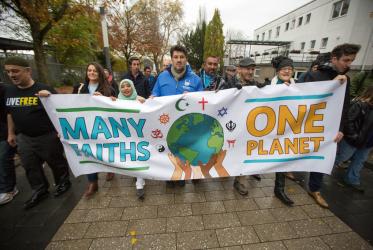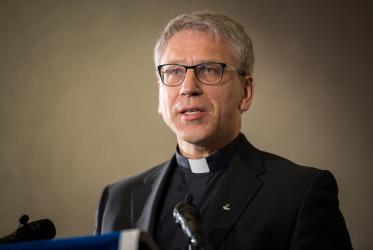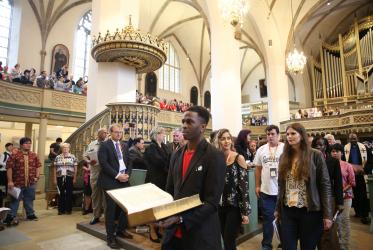Displaying 101 - 120 of 153
02 August 2018
Violence against women focus of meeting in Italy
22 May 2018
“Church Action for Tax Justice” begins in UK
02 May 2018
COP 23 “debriefing” brings faith and ethical perspectives
23 January 2018
Tveit to World Economic Forum: “Say no to nuclear weapons”
22 January 2018
Church of Sweden responds to “fake news” regarding Worship Book
05 December 2017
Tveit: “We are called to embrace the gifts of the others”
07 November 2017
WCC commission reflects on challenges of ecumenical formation
10 October 2017
WCC students study what makes a peace communicator
18 July 2017
Gender-based violence concerns ‘all of humanity’
11 July 2017

